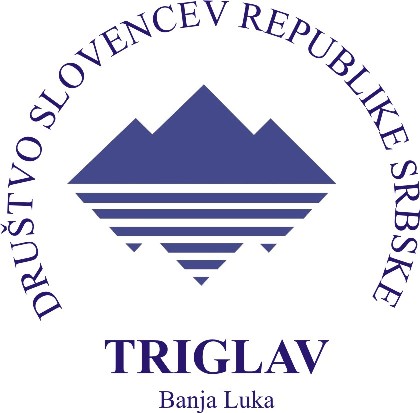Students of supply teaching lessons from Banjaluka, Slatina and Prijedor have joined an overall Slovenian action National month of joint reading. Slovenian lessons cannot go without reading, the youngest learn Slovenian alphabet and first words, elder read fiction and educational texts.
This year is the European Year of Cultural Heritage, that is why we linked reading with learning about sights of Slovenia; our topics were food, Slovenian towns and holidays. Given that 2018 is also Cankar's year we did not forget about this great figure. We read his story Cup with dried pears. When learning about traditional Slovenian food we also marked the map with names of food significant for those areas. We also filled in the names of towns and customs. In the book of Irena Cerar Paths of fairy tales of Slovenia we looked for stories happening on fortresses. In learning more about holidays we were assisted by books Slovenian holidays by Janez Bogataj and It smells like the holidays by Slavka Ilich. We found a lot of interesting information in magazines and tourist leaflets. Pupils will show their knowledge about Slovenian holidays at the quiz we organise on 20 October in Banjaluka.
European Language Day was an opportunity to present the project National month of joint reading in the National Library in Banjaluka. At the fair of languages there were exhibited posters with illustrations of Slovenian creators. Members of Association Triglav from Banjaluka also take part in the EU-funded project United in variety. Books are excellent opportunity to build bridges between cultures, reading can help us see what we have in common and what are our differences. The event that will be organised at the end of the project by Association Pleteršnikova domačija Pišece will be an opportunity for discussion and socialising.
National month of joint reading is coming to an end, 168 performers registered as many as 533 events. Much of the socialising will become traditional and we will also continue reading. The books contain much more treasure, and we discover it when learning Slovenian.
Barbara Hanuš




